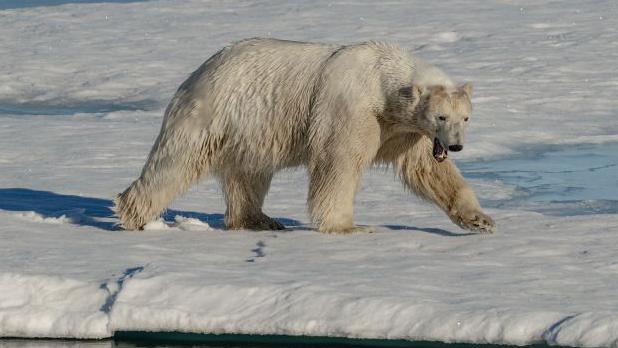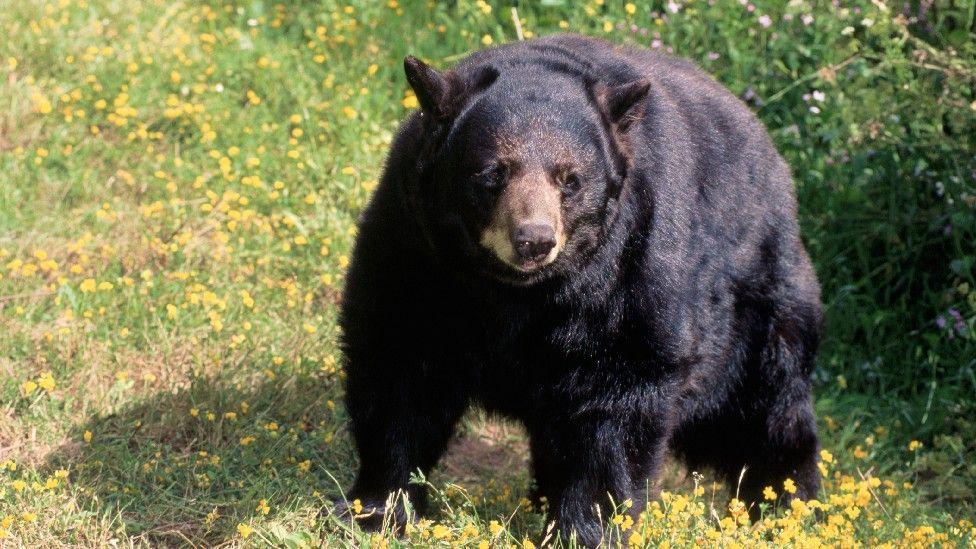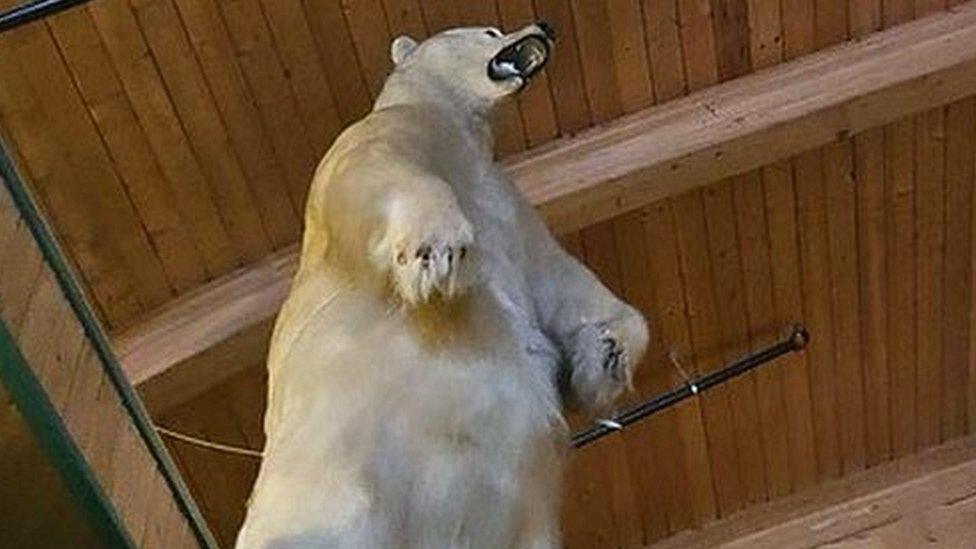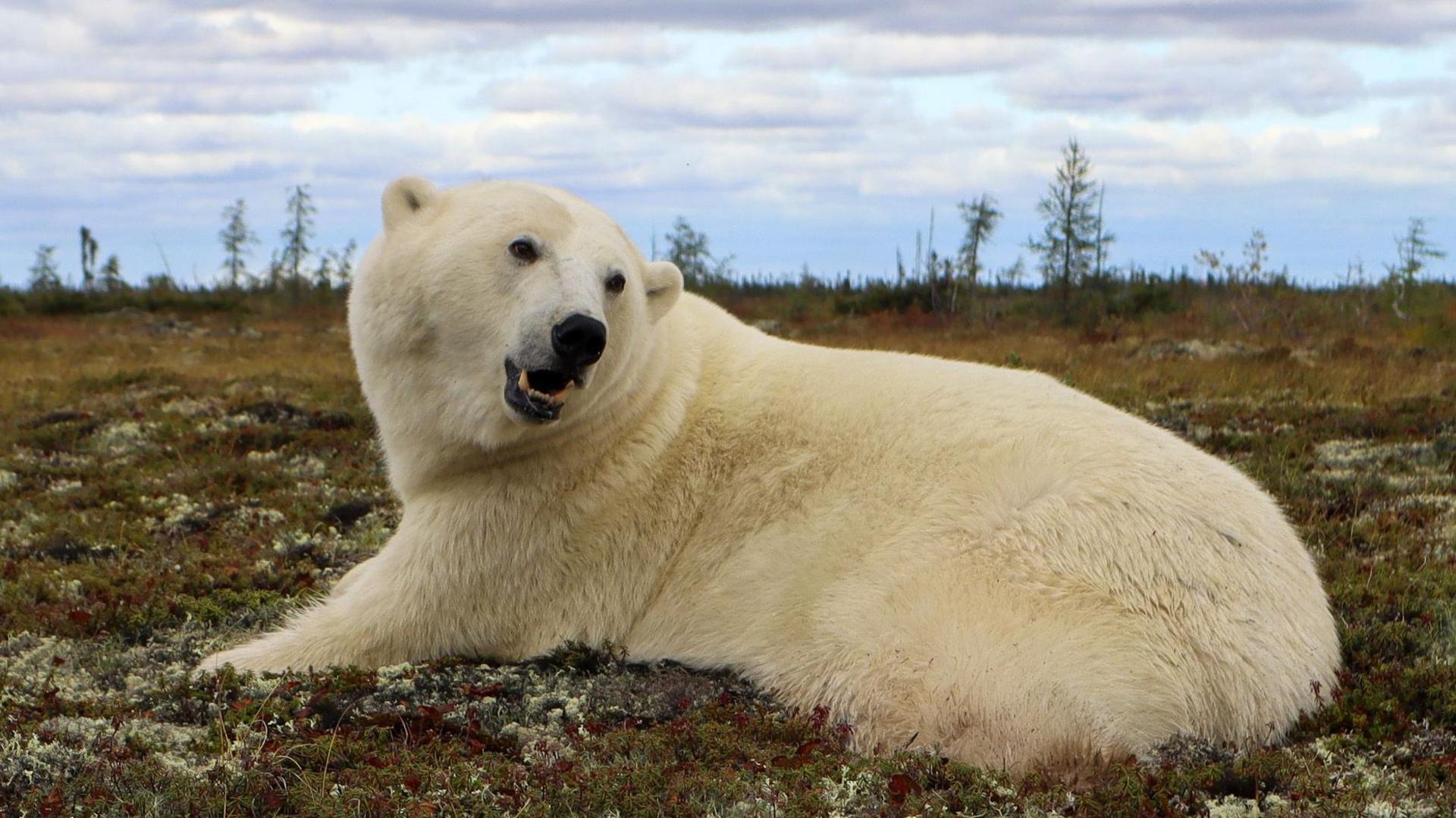Two polar bears kill Canadian worker in rare attack

- Published
Two polar bears killed a worker at a remote Arctic radar station in Canada's northern Nunavut territory, prompting an investigation into the rare fatal attack.
The employee, who has not been named, was working for Nasittuq Corporation - a logistics company which operates radar defence sites on behalf of the Canadian government.
Other workers responded to the scene and killed one of the bears, the company said in a statement.
"We are working closely with local authorities and regulatory agencies to conduct a thorough investigation into the circumstances surrounding this incident," the company said.
"The safety and well-being of our employees is our highest priority, and we are deeply committed to ensuring a safe working environment."
The attack took place last week on Brevoort Island, southeast of Baffin Island.
The site is one of dozens of North Warning System outposts in northern Canada, according to CBS News, the BBC's partner in the US.
The network, which spans 3,100 miles (5,000km), exists to detect aircraft or missiles entering the region.
Polar bear attacks on humans are extremely rare, but this is at least the second recorded deadly incident involving a polar bear attack since 2023.
Last year, a woman and her 1-year-old son were killed by a polar bear in an Alaskan village.
There are about 17,000 polar bears living in the country - making up around two-thirds of the global population of the species, according to the Canadian government.
According to the International Union for Conservation of Nature (IUCN) Red List of Threatened Species, polar bears were listed as vulnerable in 2015. Scientists agree climate change will cause a reduction in sea ice, which is likely to have a long-term detrimental effect on polar bears and overall population numbers.
Elsewhere, a three-year-old girl in the US state of Montana was dragged out of her tent at a private campground by a black bear on Sunday.
Wildlife officials have set traps, and euthanised one bear believed to have been involved in the attack.
Black bears are much smaller than polar bears but can still be very dangerous to humans.
In 2023, a woman in California was fatally attacked and eaten inside her home, marking the first death by a black bear in the state's history.
Correction 2 December 2024: This article originally reported that 'the species is in decline, and scientists attribute it to the loss of sea ice caused by global warming - leading to shrinking of their hunting and breeding grounds.' It was edited to report that 'according to the IUCN Red List of Threatened Species, polar bears were listed as vulnerable in 2015.' The correction was made after a finding by the BBC's Executive Complaints Unit, which can be found here.
Related topics
- Published7 June 2024

- Published1 February 2024

- Published17 July 2024
